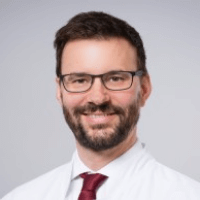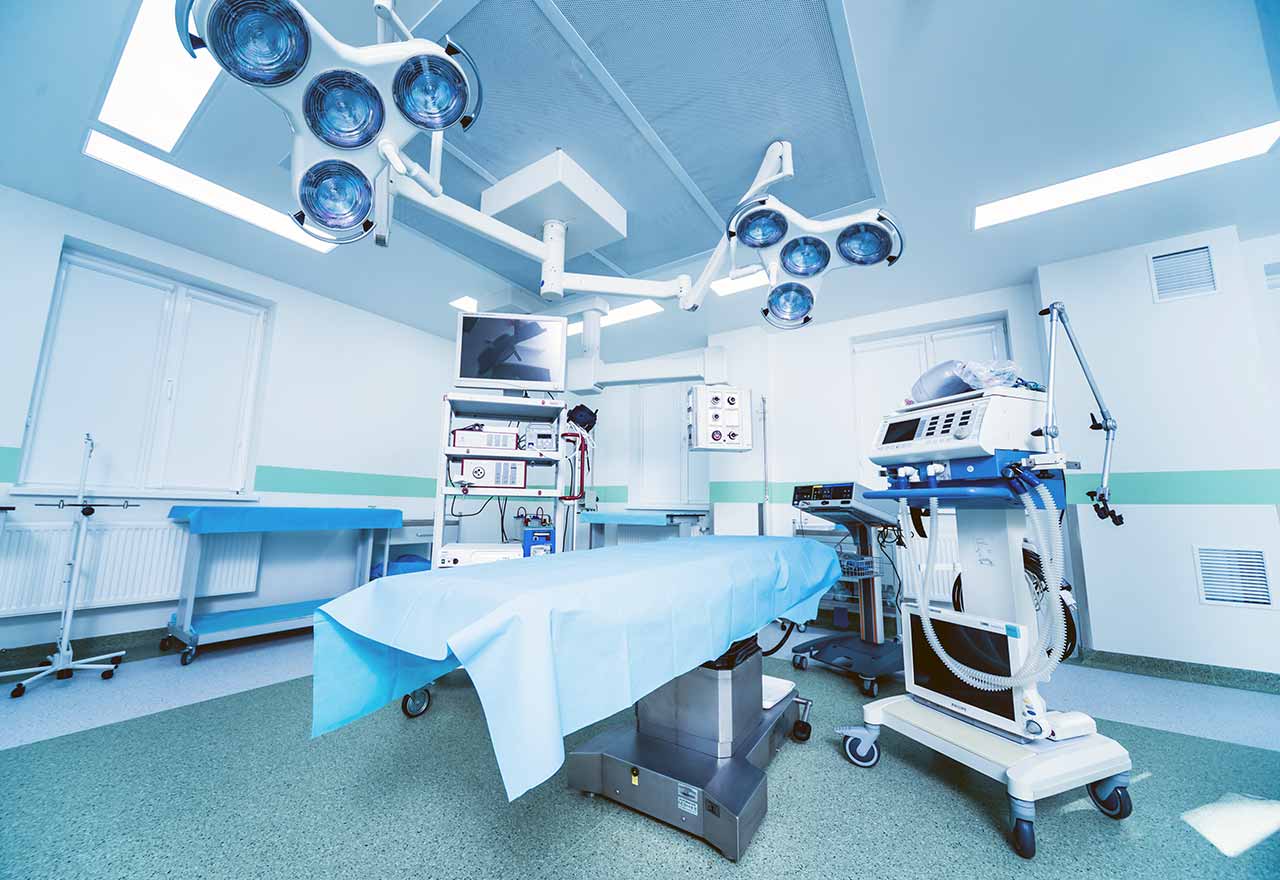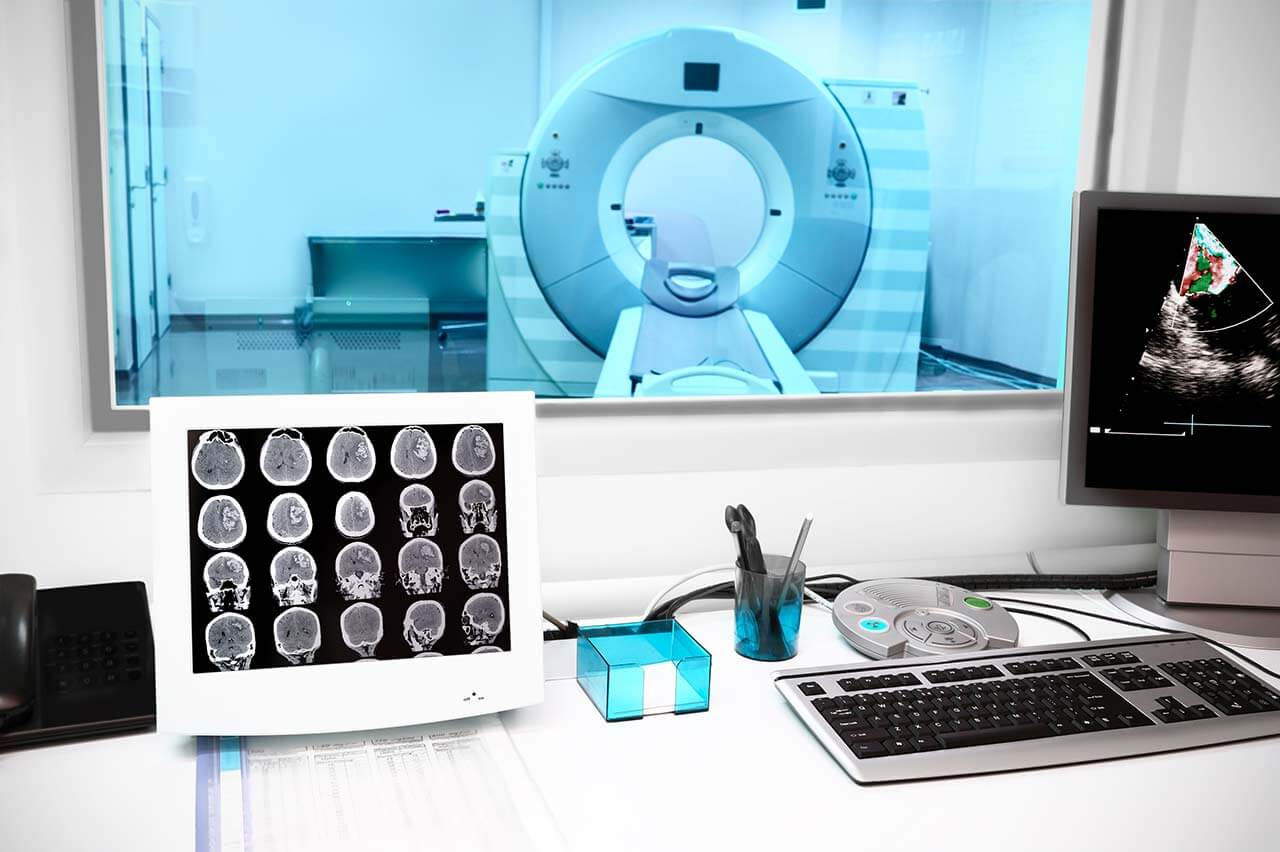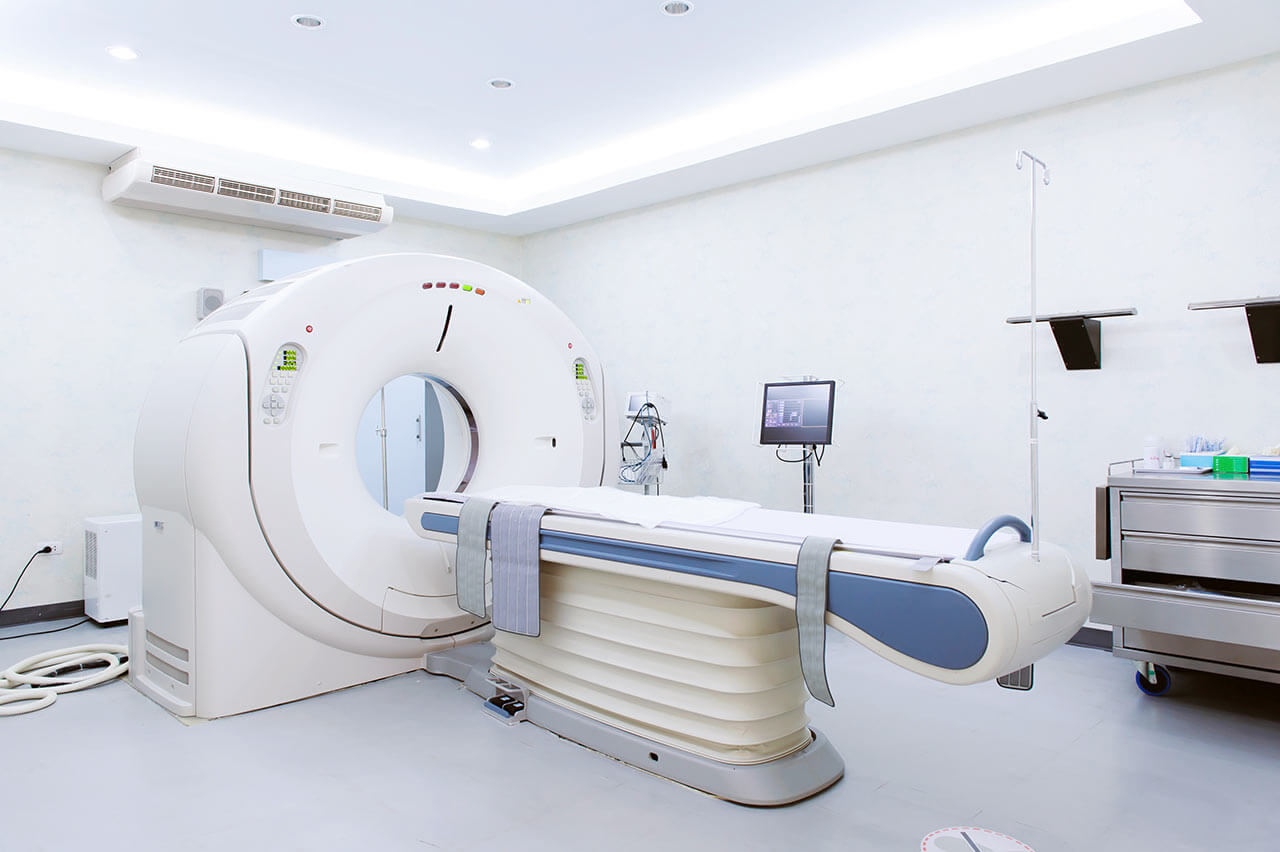
The program includes:
- Initial presentation in the clinic
- clinical history taking
- physical examination
- review of medical records
- laboratory tests:
- complete blood count
- biochemical blood analysis
- indicators of inflammation (CRP, ESR)
- indicators of blood coagulation
- otorhinolaryngological examination
- x-ray/ ultrasound/ sialography
- nursing services
- consultation of related specialists
- consultation of the chief physician and all leading experts
- development of individual treatment plan
- written statement
Required documents
- Medical records
- US scan, MRI/CT scan (if available)
Service
You may also book:
 BookingHealth Price from:
BookingHealth Price from:
About the department
The Department of Adult and Pediatric Otolaryngology at the University Hospital Hamburg-Eppendorf offers all the possibilities of modern medicine for the prevention, diagnosis, and treatment of diseases of the ear, throat, and nose in patients of all ages, including children. Surgical treatment of head and neck tumors with special emphasis on salivary gland tumors, skull base tumors, and head and neck skin cancer occupies an important place in the daily work of the medical facility. The department's specialists perform over 100 surgical resections of salivary gland tumors annually, earning the medical institution a reputation as one of the most competent in this field in the country. The department is certified by the German Cancer Society (DKG) and the German Cancer Aid Foundation (Deutsche Krebshilfe) as a leading Head and Neck Cancer Center in Germany. The department successfully treats middle and inner ear pathologies, performing more than 700 such surgeries annually, including cochlear implantation followed by comprehensive hearing and speech rehabilitation. In addition, more than 800 surgical procedures are performed annually for pathologies of the nasal cavity, paranasal sinuses, and skull base. The surgical options are complemented by a wide range of aesthetic facial plastic surgery. Every year, the department treats over 13,000 patients, many of whom come from abroad. The physicians work in accordance with the recommendations of the German Society of Oto-Rhino-Laryngology, Head and Neck Surgery (DGHNO-KHC) and adhere to the quality standards of the ClarCert certification system. The Head Physician of the department is Prof. Dr. med. Christian Betz.
The department is part of the Head and Neck Cancer Center where otolaryngologists, oncologists, radiologists, and radiation therapists work hand in hand for the benefit of the patient. Each clinical case is reviewed by a team of physicians, allowing the most effective treatment regimen to be developed based on the patient's individual needs. If a head or neck tumor is detected, the first-line treatment is its surgical resection. In most cases, surgery is followed by radiation therapy and/or drug therapy (chemotherapy, targeted therapy, or immunotherapy). If surgery is contraindicated due to high surgical risks, the physicians of the department offer an alternative treatment method called radiochemotherapy. The department's team of otolaryngologists also provides innovative treatment of throat and oral malignancies using robotic surgical techniques: the manipulator arms of the da Vinci robotic system have unique maneuverability that allows complex surgical manipulations to be performed in hard-to-reach areas. The department is one of the first centers in Germany to practice da Vinci robotic surgery for the removal of throat and oral tumors, so the medical facility is virtually unparalleled in the country in this medical field.
The department's team of doctors has extensive experience in cochlear implantation, which is currently the only effective treatment method for bilateral sensorineural hearing loss and severe hearing loss where hearing aids do not provide the desired result. A cochlear implant replaces the function of the sensory cells of the inner ear. The device consists of an internal and external part. The internal part is implanted under the patient's skin during surgery, while the external part with a processor is placed on the patient's ear and/or head. The cochlear implant has an unlimited lifespan, so there is no need to replace the device after a certain period of time. Cochlear implant surgery is the first step in the treatment of bilateral severe sensorineural hearing loss and is followed by auditory and speech rehabilitation, a set of measures designed to develop the ability to hear and recognize sounds and speech with the help of a cochlear implant. Auditory and speech rehabilitation for adults includes adjustment of the cochlear implant processor and sessions with a specialist in the development of auditory perception. During rehabilitation of children after cochlear implantation, doctors also perform activities to develop speech, understand other people's speech, and teach parents how to develop the child's hearing and speech at home.
The range of medical services provided by the department is supplemented by the treatment of nasal and paranasal sinus diseases. The specialists in the department most often treat rhinitis, sinusitis, traumatic nasal injuries, nasal breathing disorders caused by deviated septum, and nasal polyps. Drug therapy is the treatment of choice whenever possible. Surgical procedures are performed when clinically indicated. All operations on the nasal cavity and paranasal sinuses are performed in the medical facility using minimally traumatic endoscopic techniques, often on an outpatient basis. The otolaryngologists of the department have additional qualifications in the field of facial plastic surgery, so they also successfully perform rhinoplasty, a plastic surgery to reshape the nose.
The department is one of the leading medical institutions in Germany for the treatment of salivary gland diseases. The department provides medical care for patients with sialadenitis (inflammatory lesion of the salivary glands), salivary stones, and benign and malignant salivary gland tumors. The department has state-of-the-art equipment for sialendoscopy, a highly accurate diagnostic procedure to assess the condition and function of the salivary glands. If necessary, therapeutic manipulations can be performed during the endoscopic examination, such as stone removal or dilatation of salivary duct stenosis.
The department's medical services include the following options:
- Diagnostics and treatment of head and neck tumors
- Diagnostics and treatment of oral cancer
- Diagnostics and treatment of tongue cancer
- Diagnostics and treatment of throat cancer
- Diagnostics and treatment of laryngeal cancer
- Diagnostics and treatment of nasal and paranasal sinus cancer
- Diagnostics and treatment of salivary gland cancer
- Diagnostics and treatment of thyroid cancer
- Diagnostics and treatment of head and neck skin cancer
- Cochlear implantation in adults and children for the treatment of bilateral sensorineural hearing loss and other types of hearing loss
- Diagnostics and treatment of inner ear diseases
- Diagnostics and treatment of hearing loss
- Diagnostics and treatment of tinnitus (ringing in ears)
- Diagnostics and treatment of Meniere's disease
- Diagnostics and treatment of acoustic neuroma
- Diagnostics and treatment of dizziness
- Diagnostics and treatment of middle ear diseases
- Diagnostics and treatment of otitis media
- Diagnostics and treatment of nasal and paranasal sinus diseases
- Diagnostics and treatment of rhinitis
- Diagnostics and treatment of sinusitis
- Diagnostics and treatment of traumatic nasal injuries
- Diagnostics and treatment of nasal breathing disorders caused by deviated nasal septum
- Diagnostics and treatment of nasal polyps
- Diagnostics and treatment of salivary gland diseases
- Diagnostics and treatment of sialadenitis (inflammation of the salivary glands)
- Diagnostics and treatment of salivary stones
- Diagnostics and treatment of benign and malignant salivary gland tumors
- Diagnostics and treatment of thyroid diseases
- Diagnostics and treatment of nodular goiter
- Diagnostics and treatment of diffuse goiter
- Diagnostics and treatment of thyroid cancer
- Skull base surgery
- Surgery for skull base tumors
- Surgery for skull base malformations
- Surgery for chronic inflammatory processes in the skull base
- Diagnostics and treatment of laryngeal and tracheal stenosis
- Diagnostics and treatment of obstructive sleep apnea
- Diagnostics and treatment of other otolaryngological diseases in adults and children
Curriculum vitae
Higher Education and Postgraduate Training
- 10.1993 - 06.2000 Medical studies, Ludwig Maximilian University of Munich.
- 12.2000 Thesis defense, summa cum laude, Ludwig Maximilian University of Munich. Subject: "Combined fluorescence diagnostics (5-ALA-induced PpIX and autofluorescence) for diagnosis and delineation of oral carcinomas: fluorescence imaging, spectral analysis, and kinetics".
- 03.2010 Habilitation, Ludwig Maximilian University of Munich. Subject: "Application of optical methods for early diagnostics of upper respiratory tract tumors".
Qualifications
- 02.2002 Admission to medical practice.
- 01.2006 Board certification in Otolaryngology.
- 04.2012 Additional qualification in Plastic Surgery.
- 10.2013 Optional advanced training in Special Otolaryngologic Surgery.
- 10.2015 Additional qualification in Allergology.
Professional Career
- 08.2000 - 01.2002 Internship, Department of Otolaryngology, University Hospital of Ludwig Maximilian University of Munich.
- 02.2002 - 05.2006 Research Fellow, Department of Otolaryngology, University Hospital of Ludwig Maximilian University of Munich.
- 06.2006 - 05.2007 Research and Clinical Fellow, Department of Oral and Maxillofacial Surgery, University College London Hospital, London, UK.
- 07.2007 - 09.2009 Research Fellow, Department of Otolaryngology, University Hospital of Ludwig Maximilian University of Munich.
- 10.2009 - 06.2010 Senior Physician, Department of Otolaryngology, University Hospital of Ludwig Maximilian University of Munich.
- 07.2010 - 06.2011 Physician, Section for Head and Neck Surgery, Department of Otolaryngology, Princess Alexandra Hospital, University of Queensland, Brisbane, Australia.
- 07.2011 - 11.2013 Senior Physician, Department of Otolaryngology, University Hospital of Ludwig Maximilian University of Munich.
- 12.2013 - 09.2017 Managing Senior Physician, Department of Otolaryngology, University Hospital of Ludwig Maximilian University of Munich.
- 10.2017 - 06.2018 Deputy Head Physician, Department of Otolaryngology, University Hospital Tuebingen.
- Since 07.2018 Head Physician, Department of Adult and Pediatric Otolaryngology, University Hospital Hamburg-Eppendorf.
Scientific Career
- Since 10.1996 Researcher in various projects.
- Since 12.1996 Active participation in numerous congresses, meetings, and seminars.
- Since 10.1997 Numerous scientific publications.
- Since 08.2003 Worked as a Scientific Supervisor.
- Since 08.2006 Principal Investigator in research projects.
- Since 03.2009 Organization of congresses and scientific seminars.
- Since 04.2015 Associate Editor of the journal "Lasers in Surgery and Medicine".
- Since 06.2016 Editor of the column "Laryngology and tracheal diseases", journal "HNO".
- 06.2016 Extraordinary Professorship, Ludwig Maximilian University of Munich.
- 07.2018 Professorship, University Hospital Hamburg-Eppendorf.
Prizes, Awards, and Honors
- 04.1999 - 09.1999 Scholarship from the State of Bavaria at Harvard Medical School within the framework of the Munich-Harvard Medical Educational Alliance.
- 05.1999 Video Award from the German Society of Oto-Rhino-Laryngology, Head and Neck Surgery (DGHNO-KHC). Subject: "Diagnostics of oral cavity tumors with 5-ALA-induced PpIX fluorescence".
- 03.2009 Award for the best report on visual diagnostics of head and neck pathologies.
- 11.2012 Scholarship for training abroad from the German Society of Oto-Rhino-Laryngology, Head and Neck Surgery (DGHNO-KHC), participation in the course on skull base surgery, University of Pittsburgh.
Memberships in Professional Societies
- Since 2000 German Society of Oto-Rhino-Laryngology, Head and Neck Surgery (DGHNO-KHC).
- Since 2001 Harvard Club Germany (Harvard Club Deutschland), Harvard University Alumni Association in Germany (2001-2018 – section in Munich, 2018 – section in Hamburg).
- Since 2002 German Academy of Otolaryngology, Head and Neck Surgery.
- Since 2003 German Society for Laser Medicine (DGLM).
- Since 2007 Photonics21 (European Technology Platform).
- Since 2008 European Platform for Photodynamic Medicine (EPPM).
- Since 2008 Head and Neck Optical Diagnostics Society (HNODS).
- Since 2013 Skull Base Society and European Skull Base Society.
- Since 2015 European Laryngological Society.
- Since 2015 Working Group on Laryngology and Tracheal Diseases of the German Society of Oto-Rhino-Laryngology, Head and Neck Surgery (Board Member).
- Since 2018 Working Group on Endoscopy of the German Society of Oto-Rhino-Laryngology, Head and Neck Surgery (Board Member).
Photo of the doctor: (c) Universitätsklinikum Hamburg-Eppendorf (UKE)
About hospital
According to the Focus magazine, the University Hospital Hamburg-Eppendorf is one of the top ten hospitals in Germany!
Since its foundation in 1889, the hospital has taken a leading position in the European medical arena, which it still holds today. A highly competent medical team of more than 15,300 employees takes care of the health of patients. Approximately 2,900 of them are physicians and researchers, and more than 3,400 work as nurses and therapists. The hospital has 1,738 beds for inpatient treatment, and many diagnostic and therapeutic services are provided on an outpatient basis. A solid foundation for successful clinical practice in the medical complex is formed by a combination of research achievements with state-of-the-art equipment and the highest professionalism of doctors. In addition, the hospital has a modern and extremely comfortable infrastructure. The most important value for every employee of the University Hospital Hamburg-Eppendorf is the health and well-being of every patient.
The medical facility was the first university hospital in Europe to implement an electronic system for storing patient medical reports. As a result, all diagnostic and treatment protocols are stored electronically. In 2011, the hospital was certified as the first fully digital hospital in Europe.
The hospital represents all areas of modern medicine. The doctors of the healthcare facility have a wealth of theoretical knowledge and vast clinical experience, which allows them to easily cope with the treatment of both common and extremely rare, complex clinical cases. About 550,000 patients are treated here each year, over 450,000 of whom receive outpatient medical care.
An important part of the work of the University Hospital Hamburg-Eppendorf is research activities aimed at developing innovative diagnostic and treatment methods. The main areas of research of the hospital include neurobiology, oncology, cardiovascular research, and research on infectious and inflammatory diseases. Special attention is also given to research in molecular imaging and skeletal biology.
The hospital is distinguished by its first-class level of medical care, which is confirmed by numerous quality certificates of European and international standards: DIN EN IS0 9001 certificate, certificates of the German Cancer Society (DKG) in the treatment of breast cancer, colon cancer, gynecological cancer, prostate cancer, and other oncological diseases, certificate of the German Cardiac Society (DGK) in the treatment of acute coronary syndrome, certificate of the German Spine Society (DWG), and others.
Photo: (с) depositphotos
Accommodation in hospital
Patients rooms
The patients of the University Hospital Hamburg-Eppendorf stay in comfortable single and double bright rooms with a modern design. Each patient room has an ensuite bathroom with a shower and a toilet. The standard patient room furnishings include an automatically adjustable bed with an orthopedic mattress, a bedside table, a wardrobe, a table and chairs for receiving visitors, a telephone, a radio, and a TV. Wi-Fi access is available in patient rooms and throughout the hospital.
If desired, patients can stay in single enhanced-comfort rooms. These rooms are more spacious and are equipped with upholstered furniture, a safe, and a mini-fridge.
Meals and Menus
The hospital offers three meals a day: breakfast, lunch, and dinner. Breakfast and dinner are served in the form of buffets, and for lunch you can choose from several set menus – in total, more than 20 dishes are served for lunch, including vegetarian ones.
If, for some reason, you cannot eat all of the foods, you will be offered an individual menu. Please inform the medical staff about your dietary preferences prior to the treatment.
Further details
Standard rooms include:
![]() Toilet
Toilet
![]() Shower
Shower
![]() Wi-Fi
Wi-Fi
![]() TV
TV
Religion
Religious services are available upon request.
Accompanying person
During the inpatient program, an accompanying person may stay with you in a patient room or hotel of your choice.
Hospital accommodation
During the outpatient program, you may stay in a hotel at the hospital.
Hotel
During the outpatient program, you may stay in a hotel of your choice. Managers will help you choose the most suitable options.
The hospital offers a full range of laboratory tests (general, hormonal, tests for infections, antibodies, tumor markers, etc.), genetic tests, various modifications of ultrasound scans, CT scans, MRI and PET / CT, angiography, myelography, biopsy and other examinations. Treatment with medications, endoscopic and robotic operations, stereotaxic interventions is carried out here, modern types of radiation therapy are also used. The hospital offers patients all the necessary therapeutic techniques.
- Coiling and clipping of aneurysms of different localizations
- Transjugular intrahepatic portosystemic shunting in patients with portal hypertension
- Minimally invasive surgeries (da Vinci)
- Removal and reconstruction of mammary glands
- Hyperthermic intraperitoneal chemotherapy (HIPEC)
These are arteriovenous malformations and angiomas, vascular aneurysms, pathologies of the mammary glands, pelvic organ prolapse, urinary incontinence, malignant tumors of various localizations (area of special attention is treatment of intestinal cancer), pathologies of liver and pancreas, cataracts and rare ophthalmic pathologies (aphakia, aniridia ), infertility and other diseases.
- Interventional neuroradiology
- Mammology
- Oncology
- Gastroenterology
- Surgery
Over 2,900 highly qualified physicians and researchers work at the hospital.





